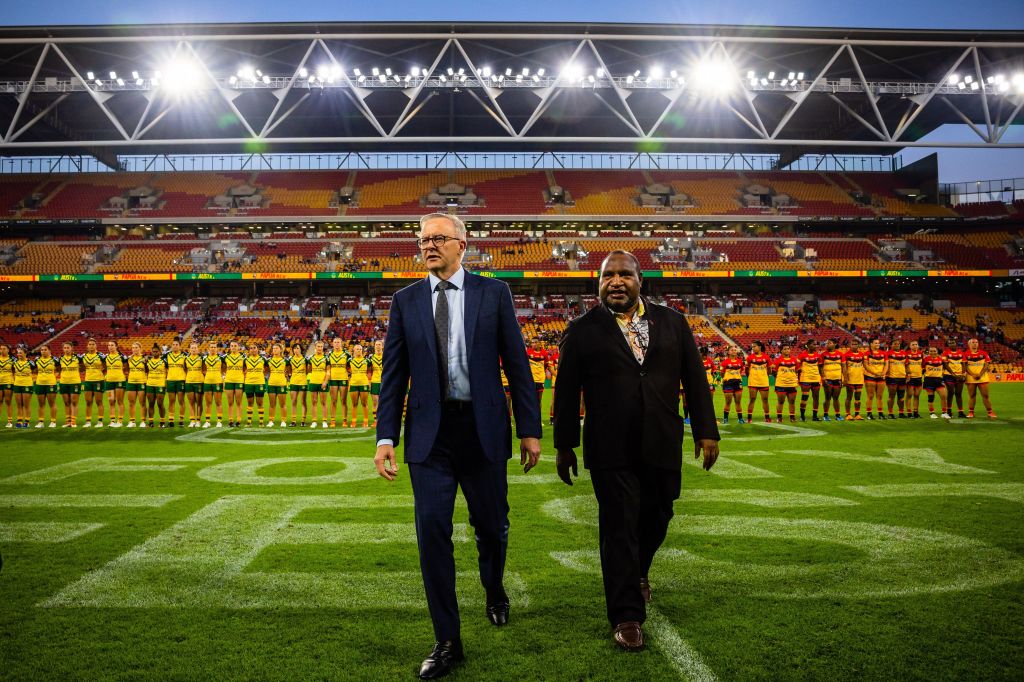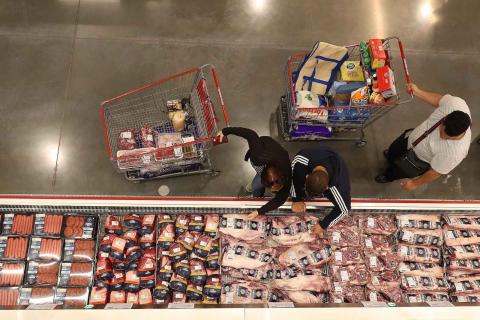Australia’s on-again, off-again affair with supporting a PNG-based team in the National Rugby League has taken another turn this week. The ABC has reported on a potential deal where Australia would pledge $600 million to the enterprise in return for an assurance that Port Moresby would refrain from entering security arrangements with China.
While the strategic, development and soft power dimensions of such an arrangement have been widely acknowledged, some more fundamental and practical issues about the shape of such a deal remain unanswered. If the Australian government is to undertake such a grand act of sports diplomacy, a good place to start is by answering these three questions.
First, what happens if the franchise fails?
The NRL is the forgotten player in much of the policy-oriented commentary on this issue. The NRL is ultimately driven by commercial imperatives and its duty as the custodian of Rugby League in Australia and New Zealand. While NRL franchises are independently owned, they are licensed to compete by the NRL based on certain criteria, including the financial viability of each team’s ownership.
The NRL’s decisions around the size and composition of the competition are necessarily driven by a brutal commercial logic based on TV rights and sponsorship. Clubs have thus been cut, merged, and reinstated in the competition over the last 30 years. Moreover, Rugby League clubs are no strangers to mismanagement.
The conditions of this agreement also carry an implicit threat by Australia to PNG’s leaders: don’t play with China, or else we’ll stop the game.
All these risks would apply with a PNG-based team – and may well be multiplied given concerns around corruption and the vastly more difficult operating environment of Port Moresby. If either a franchise itself becomes financially shaky or it becomes more of a liability than an asset to the NRL as a whole, then Team Port Moresby’s future would become tenuous.
But given that the Australian government would have been instrumental in its creation, what duties would it owe to a failing franchise? Whatever reputational gains Australia might accrue from a PNG-based team would surely be matched by the ire of Papuan Rugby League fans in allowing a franchise to fail. The Australian government might then find itself in a difficult situation, having to choose between letting the club fail or committing itself to (potentially indefinitely) propping up an otherwise unviable sports enterprise on foreign shores. In short, Australia needs an exit strategy, if required.

Flowing from this is the second question: what kind of financial stake would the Australian government have in a PNG-based team?
The most recent reporting implies a grant of $600 million over ten years. While this would be the simplest financial arrangement and put the Australian government – perhaps conveniently – at arms-length from the administration of the club, it would afford very little oversight and control in proportion to such a significant investment.
Other options might be to take an equity stake in the club, or to provide the finance through a conditional loan. There is also a strong case, for instance, that the Australian High Commissioner in Port Moresby should hold an ex officio seat on the club’s board. But this would see Australian diplomacy enter a novel terrain: professional sports administration. While any such options would give Australia greater ongoing influence over the club, they would also mean the government could be held more directly accountable for its failures.
This also leads the bigger question of who or what exactly would own the franchise. The PNG government, the Australian government, a private consortium? A combination of all three? All these options have implications for Australia’s foreign policy.
The final question is about statecraft. The reported terms of the deal would tie Port Moresby’s hands, preventing them from entering security arrangements with China. Australia needs to ask itself, then, whether it wants to employ its tools of statecraft so asymmetrically, turning one of its greatest soft power assets towards hard power ends. As ASPI’s Blake Johnson has written, “[s]ports partnerships and assistance should stay separate from [security], otherwise well-meaning sports initiatives and Australia’s reputation will be tarnished.”
The conditions of this agreement also carry an implicit threat by Australia to PNG’s leaders: don’t play with China, or else we’ll stop the game. If a future government in PNG calls Canberra’s bluff, then three issues arise for the Australian government. First, the threshold matter of whether it even has the legal authority over the NRL and a PNG-based franchise to veto the latter’s participation. Second, whether it wants to suffer the diplomatic blowback of denying Papuans their national pastime because their government exercised its diplomatic sovereignty. And finally, whether it is willing to endure the domestic political fallout of undermining the NRL’s $400 million per year TV rights deal that is contingent upon a set number of games being played only a weekly and yearly basis.
Rugby League may well be the greatest game of all. But in the Indo-Pacific’s great game, it should be a tool of restrained statecraft.

